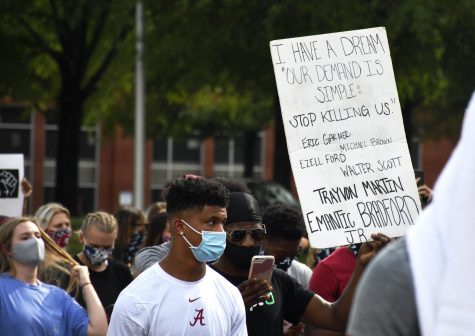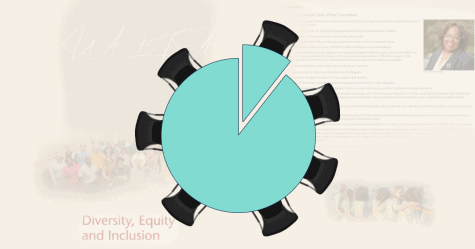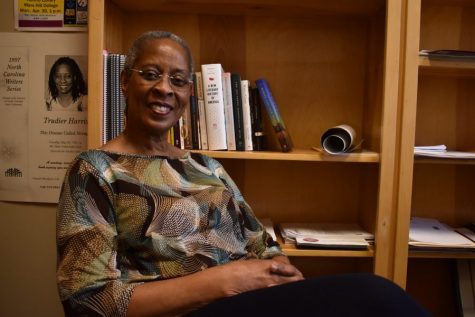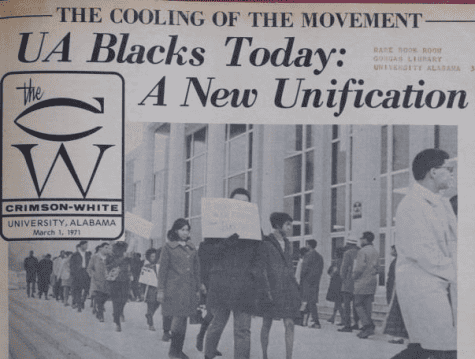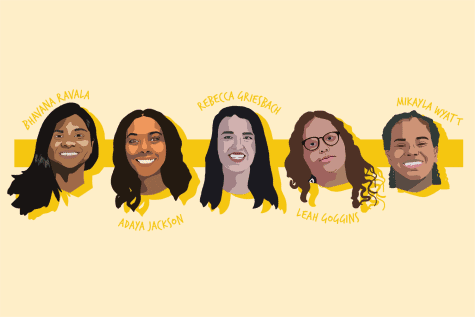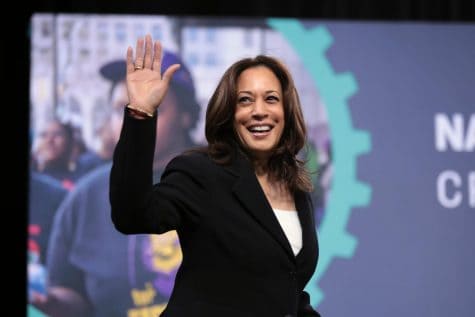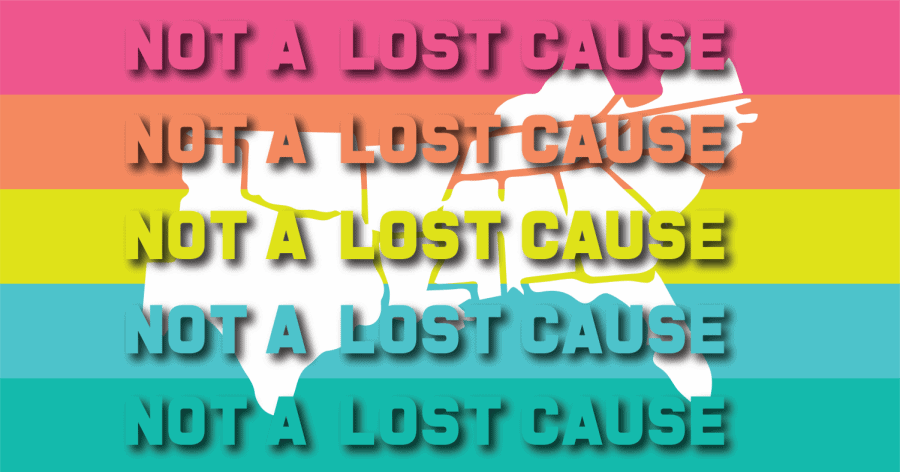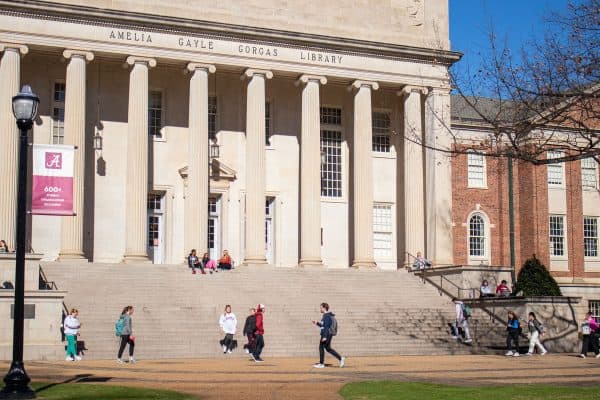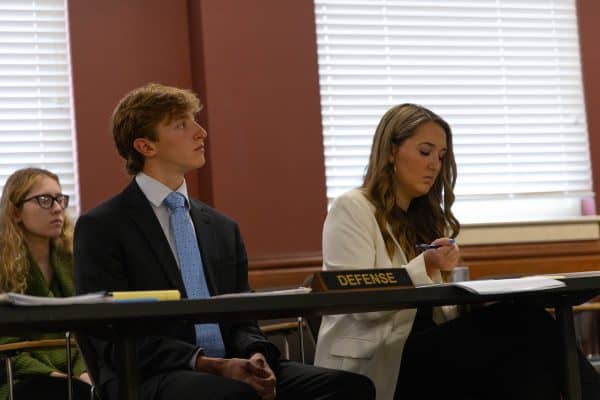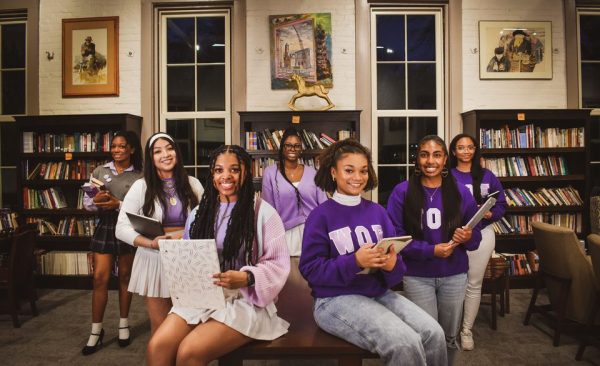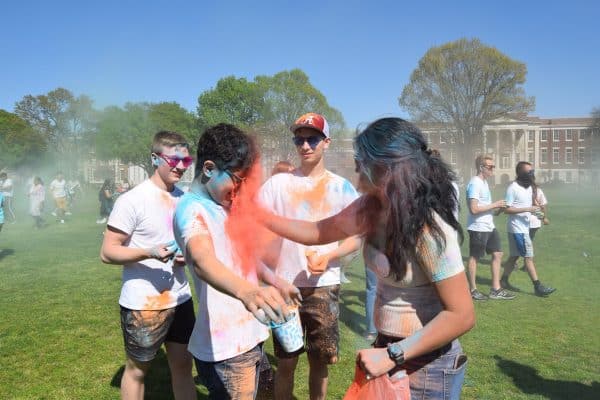‘Old myths’: Out-of-staters and changing politics make UA more than a stereotype
Students and professors say campus activists and out-of-state recruitment make the Capstone more complex than it seems on the surface.
Read more from our Black History Month Edition:
The South has a reputation for being close-minded, slow and regressive. There seems to be a certain lour surrounding it, as if it is a magical land that is living in the past. From an outside perspective, this may all seem true, however, the South is rich in food, environment, and of course, culture. And even richer than the region itself, are the people who live there.
Students at the University have been working for years to keep their campus up with the times and their professors have been taking notes.
Jack Carey, a UA southern studies instructor, has noticed the significant increase in out-of-state students at the University. Students from outside of Alabama currently make up more than half of the student population, bringing a variety of cultures, lifestyles and political views to UA’s campus.
“If a student has a southern accent, I find that more notable than someone who doesn’t,” Carey said.
A 2019 study labeled The University an “extreme case” of recruiting wealthy, white students from out of state.
“Young people choose to go here because they have some sort of preconceived notion of the South – whether that be the Greek life or just the social life, in general,” Carey said. “They have an idea of what they think Alabama will be like, even though it is rarely accurate.”
Carey said it is ideas like these that tend to trap southern states into a box, and if that box gets broken, people will dismiss the region altogether.
“When people hold onto real traditional ideas about the South, what they like to do is actually just shrink it,” he said. “Then they won’t have to deal with the fact that there’s some evidence that it’s a more complex place with complex people. You can’t rely on old myths and think it’ll stay that way.”
With names like Dr. Martin Luther King Jr. and, more recently, Stacey Abrams, the South is the forefront of political movements. At the University, students have begun taking a variety of matters into their own hands, with some organizing protests against Governor Kay Ivey’s prison plan and starting petitions to call for the renaming of campus buildings that were named after known Confederate officers.
“Historically, what we mean when we say ‘southern’ and ‘southerner’ has changed over time,” Carey said. “For a very long time, there was this assumption that a southerner was white and that changed pretty dramatically after the Civil Rights Movement.”
History-changing events like the Montgomery Bus Boycott, the Civil Rights Acts of 1957 and 1964 and the Selma-to-Montgomery March changed the way the rest of the country viewed the South. The region was no longer a place to be underestimated and forgotten, it became the birthplace of the Civil Rights Movement.
The change in The University of Alabama is a reflection of the change in the region it resides in. As the political atmosphere surrounding the nation shifts, so does the campus culture. The University has a history of campus buildings being named after known Confederate officials and we are seeing an explicit change in those areas, with help from student petitions.
However, recent administrative decisions have changed the grounds use policy regarding where students are allowed to peacefully protest. UA students are no longer allowed to protest in front of the Rose Administration building or the President’s Mansion.
“To what extent have universities like UA truly embraced a welcoming atmosphere for all students?” Carey said. “If you look at things like the building names, it can feel like an identity issue for some universities because how you name things is how you present yourself. These names were chosen during a time where Black people, as students, were not welcomed here.”
Having the freedom and space to protest is a valuable component of college culture, he explains. Over the summer, students organized and participated in Black Lives Matter marches and climate change walks.
“How the University is going to support these efforts is a question that is not going away,” he said. “It’s going to be an essential question as we move forward. The country, in so many ways, is changing, the South is changing and Alabama is changing. And if we’re going to remain functional and relevant in a modern world, we’ve got to change too.”
Georgia McGee, a senior majoring in advertising, feels a sense of comfort knowing that the hard work students put into moving the University forward does not always go unnoticed.
“I feel like a lot of times you’ll work to change something, but nothing ever comes of it,” she says. “It’s nice to know that we’re being heard, even if it happens a little slowly.”
McGee says the display of activism she has seen from fellow students has been an inspiration for her to continue advocating for change in her community.
“I see people my age and younger starting these big changes all over the world. I’ve seen it done here on campus in smaller instances, but it’s still being done.” she says. “It makes me feel glad to be alive in this day [and] age where change can actually happen, despite the circumstances.”
Utz McKnight, chair of the Department of Gender and Race Studies at UA, wants to encourage students who wish to see greater change on campus to recognize and harness their potential.
“Students should always remember that their opinions and ideas are very important to the University,” McKnight said. “Your voices are a powerful force for justice and change on campus.”
Carey, too, explained that the results of the 2020 election cycle leave him feeling hopeful for the impact of Generation Z on politics in the future.
“We saw this tremendously inspiring surge of energy and activism from young people, and in particularly people of color, that had so much to do with the remarkable results we saw in Georgia because of Stacy Abrams,” he said. “It is clear that good energy, if you will, is with young people in the South and the whole country.”



